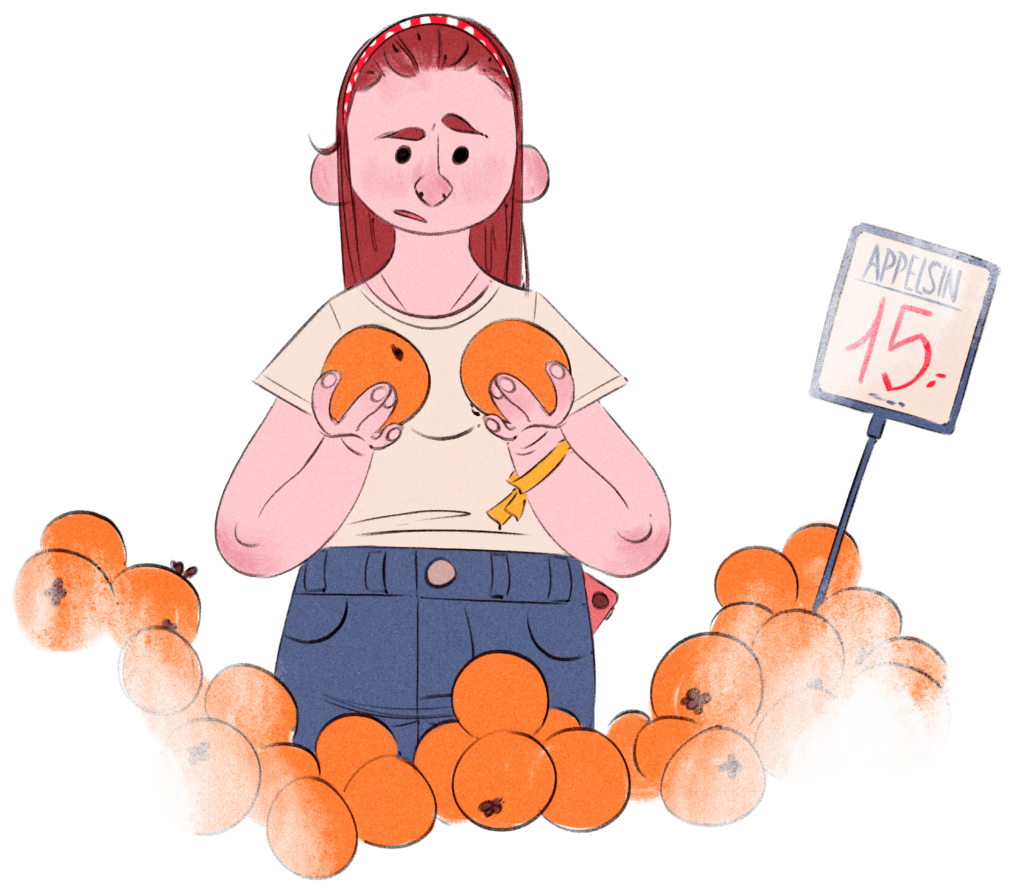Trading Sex
Most young people do not trade sex for goods, but…

In Oslo in 2018, 3,6% (400 people) of the high school pupils participating in the Young in Oslo-study reported having traded sexual favours in exchange for goods or services the past year. Boys experience this slightly more than girls. Most of the girls said they were 16 years old the first time they traded sex, while a substantial amount of the boys were under the age of consent.
The law says:
In Norway it is illegal to purchase sex, but legal to sell it (The Penal Code Section 316). Purchasing sex from persons between the ages 16 to 18 results in an aggravated penalty (The Penal Code Section 309). Purchasing sex from, or trading sex with, a person under the age of 16 is, according to Norwegian law, sexual assault against a child (The Penal Code, Sections 302, 303, 304). Purchasing sex from a person under the age of 14 is considered rape of a child (The Penal Code, Sections 299, 300, 301).
Is not thought of as prostitution
Young people who trade sexual favours will generally not view their actions as prostitution. For some it is experimenting, both with sexuality and boundaries, while others use it to solve crises; it’s a way of acquiring drugs or alcohol, or a form of self-harm/self-regulation. The goods and services being offered in return can be gifts, electronics, clothes, food, travel, make-up, tobacco, drugs, alcohol, money, an environment to fit into, or contact/care from an adult.
Some people experience feelings of worth, power and control when trading sex, while others may find it violating or harmful. Some people do not find it problematic, and experience no serious consequences, while others deal with negative consequences and find the experiences hurtful.
Young people who trade away sexual favours are not typically sexually motivated. Their experiences can also change over time.
Be especially aware of:
If you find out a young person is having sex with people they say they don’t want to have sex with, you should bring this up with the youth in question. A sign of a young person trading sexual favours can be them having more money or expensive things than normal, without providing a clear reason as to why. Paying attention to the person’s relationships and the power balance in them can also be useful in finding out if the relationship is transactional.
The research surrounding this topic suggests young people who trade sex often are vulnerable on several fronts; members of this group, to a greater extent, do not live with both of their parents, are not happy at school, have been in fights, have taken illegal drugs, have been exposed to sexual assault, have a poor relationship with their parents, have experienced verbal abuse from their parents, do not view themselves as heterosexual and have become sexually active before the age of 15. In addition, the research shows this group of young people also having a higher frequency of self-harm, suicide attempts and other experiences connected to poor mental health.
Important things to keep in mind when conversing with young people about selling and trading sex
It is not about you:
When speaking with young people about selling and trading sex you should be especially aware of your own feelings and prejudices on the topic. Most people have thoughts on what it would be like to sell sex, but it is important to put those aside and remember the person opposite you can have completely different experiences.
Steer away from shame and stigma
There are a lot of preconceptions and notions related to people who sell or trade sex – something they themselves are aware of. Many choose to hide their experiences with it, afraid of how the world around them will react, and what consequences speaking openly about it will bring. It is therefore important not to shame the person you are speaking with. Ask curious and important questions, and do not use words and expressions that can add to the shame and stigmatization. Avoid using words and phrases like ‘prostitution’, ‘prostitute’, ‘selling sex’, ‘selling your body’, unless the person themselves uses these words. Keep the focus on how the person has performed an action, and try to get them to reflect around the function this action serves in their life. It is more important to find out if the person in question is in a vulnerable situation with cause for concern, rather than define their actions as selling or trading sex.
Vær fordomsfri og inkluderende:
Det er også viktig å huske at dette er noe både gutter og jenter har erfaring med, og passe på at man ikke tar utgangspunkt i tradisjonelle kjønnsrollemønstre eller blir heteronormativ i måten man stiller spørsmål på.
Be non-judgmental and inclusive
It is also important to remember that both boys and girls have experience with this, and not to ask questions based on traditional gender roles or heteronormativity. Tips for breaking the ice: It can be a good idea to begin a conversation with “I know many others in situations similar to yours have experience with trading sex in exchange for goods”, “Do you know of anyone who has done it?”, “Has anyone offered you to have sex in exchange for goods?”, “Several teenagers I know have…” and so on, instead of “Have you done it?”. This can feel safer to the person you are talking to, as they may want to test and suss out your thoughts and opinions on the subject before opening up about their experiences. It will also give you a way to signal your knowledge of this happening, and your availability to talk about it.
Is the young person angry or offended
If the person you are talking to becomes angry or feels attacked, and says, for example, “Do you think I’m a hore?” you can answer by saying you’re asking about this because you know a lot of young people in similar situations have the same experiences, and you can’t tell if they do only by looking. This can defuse the situation and assure the person speaking with you that you are not looking down on them.
“Trading sex”
Morning webinar
That young people use sex as capital to achieve non-sexual benefits is sometimes presented as part of young people’s sexual habits. But – is it really so? How common is it for young people to use sex as a means of exchange? And how should we talk to young people about the subject? In the morning webinar on the left, we discuss this more.
Emilie 16 year old
Emilie has brought many new and expensive things to school. She got into a car with an older man. How can she afford all these things??
Emilie needs a safe adult to talk to. You can give it a try! Visit the online simulator (Norwegian) www.snakkemedbarn.no

